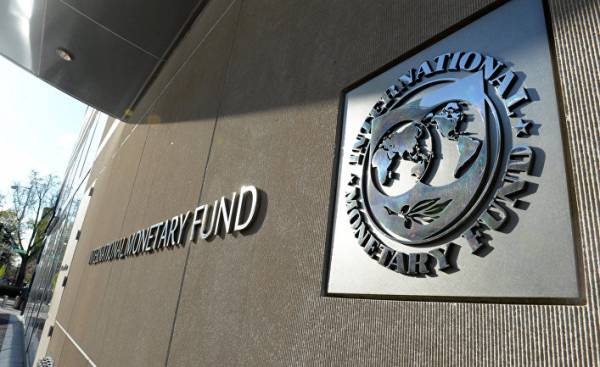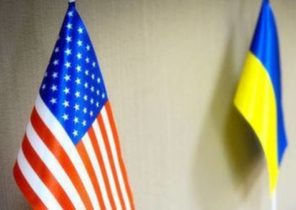
Donald trump and marine Le Pen (Marine Le Pen) assure that policies of protectionism is a panacea for the dangers of globalization. But this policy has proved its danger in the 30-ies of the last century. Recent studies about the growth of customs duties has also revealed a very dangerous trend.
This topic is in the air. Everybody is talking about it. Especially populists, who see in this policy a miracle cure against the harmful effects of globalisation on workers in developed countries. To combat the catastrophic unemployment and rampant closure of businesses need to erect barriers to increase customs duties on imports that destroy jobs, spending and tax policy to restore the production in national territory. Protectionism with a deafening force returns to the forefront.
Primarily in the US, where Donald trump never ceases to distribute this threat. He mentioned the increase in customs duties of 35% on imports from Mexico and 45% from China? If he wants to establish a General tax of 10 % on the rest of the U.S. import and tax exemption for export earnings of us companies? Not far behind, and Europe, including France with marine Le Pen and UK with Brexton.
Policy traditional sense is concerned, as the heads of major international organizations. First and foremost, of course, Roberto Azevedo (Roberto Azevêdo), Director-General of the WTO, and with him was Christine Lagarde (Christine Lagarde), the managing Director, IMF angel gurría, OECD Secretary-General.
Most economists, meanwhile, are hesitant to include in its forecasts a catastrophic scenario. A huge number of votes calls for common sense, again not to worry 1930. Populists suffer from memory loss? 17 June, 1930, after the crash of 1929, the U.S. Congress passed the Smoot-Hawley under which the rates were raised more than 20 thousand of imported goods. Depending on the circumstances, the level fluctuated between 38 % and 50 %. The purpose of the law was to promote domestic production of the imported goods. Calling the law “an economic stupidity”, Henry Ford spent most of the evening in the White house trying to convince President Hoover to veto the law. It was all in vain. The law was passed and the response of countries such as Canada, the UK, France and Germany not long in coming. The result was a drop in trade in 1929 and the 1930s. 70% that finally pushed the US economy into the Great Depression. The unemployment rate in the US from 9% in 1930, increased to 16% next year and to 25% in 1932.
To live in isolation does not mean to prosper
Only at the end of the Second world war, the international community fixes the mistakes of the past and this makes GATT, predecessor of WTO. This is followed by decades of trade growth and globalization of production chains. Today this system is under threat.
In a recent study, Nicholas Fawcett (Nicholas Fawcett), an economist from Goldman Sachs calculated the consequences of the decisions of Donald trump. In the case of imposition of tax of 45% on imports from China and 35% from Mexico, and in the case that China and Mexico will meet the same, US GDP will lose 0.7 points to 2019. For China, the effect will be lower (-0.3) and.
In its latest report on prospects for the global economies in October 2016, the IMF also gives the figures. If two countries, USA and China, nalezhat customs duty of 10% on imports, the GDP losses for each is 1.5 percentage points three years after the decision. The investment will be reduced by nearly 5% and trade turnover between the two countries will shrink by almost 15%. The IMF does not provide forecasts of amusement, but everyone can imagine how it will affect the situation, given that the activities of nearly 11.5 million Americans associated with United States export. In the second scenario of development of events the IMF goes further: he suggests a General increase in import prices by 10 %, which will be formed partly due to the increase in customs duties, partly because of the technical and commercial barriers (control measures, sanitary and phytosanitary standards). After five years, the world GDP will decrease by 1.75 points, and in the long run, even 2 points. Global demand will decline, business investment will decline by 5 %, exports and imports will fall by 16 %.
To live in isolation behind the wall — not to prosper. This is not so. As rightly noted Fred Bergsten (Fred Bergsten), member of the think tank the Peterson Institute for international Economics, “those who rejected globalization, suffered a humiliating defeat: compare North Korea with its neighbor to the South or the Soviet Union with China.” Protectionism is popular with some politicians mainly for political reasons. It allows them to collect the voices of employees, which they will defend. Populists are not interested in the loss of consumers or a huge number of other jobs that will be destroyed. Their ideas spread quickly thanks to the millions of employees who have not benefited from globalization. The main task of political leaders to help them. With the help of more equitable trade rules and more equitable trade agreements, where each country implements its obligations. But not with protectionism, which will only open a Pandora’s box.







